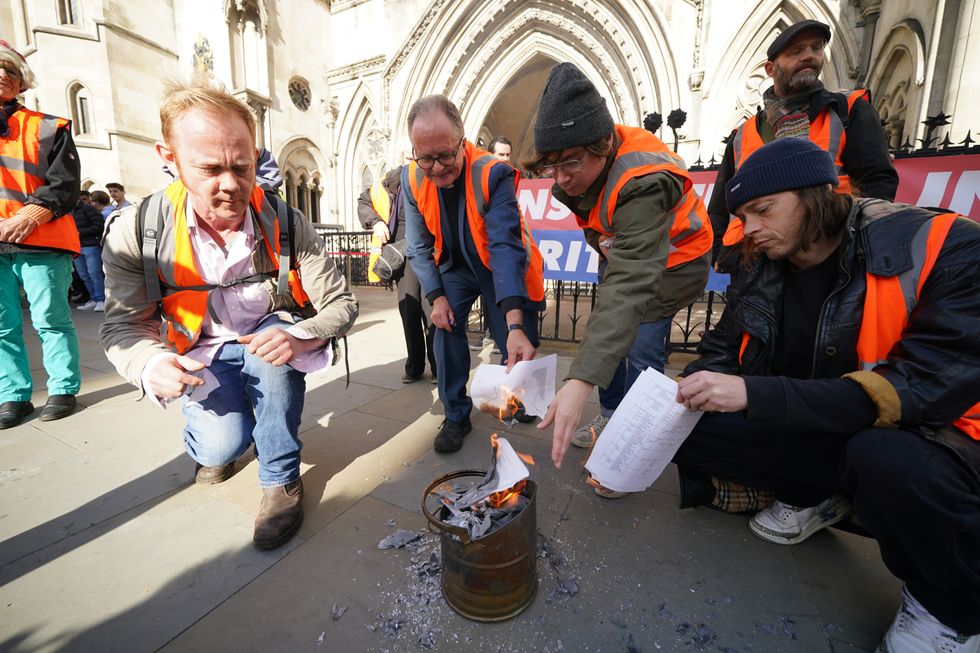Insulate Britain: More than 100 climate change protesters likely to face trial

Demonstrators from Insulate Britain outside the High Court, central London, burn pages from court injunctions they have been individually served ahead of a hearing over three injunctions granted to National Highways in late September and October, covering the M25, Port of Dover and major A roads around London. Picture date: Tuesday October 12, 2021.
Yui Mok










